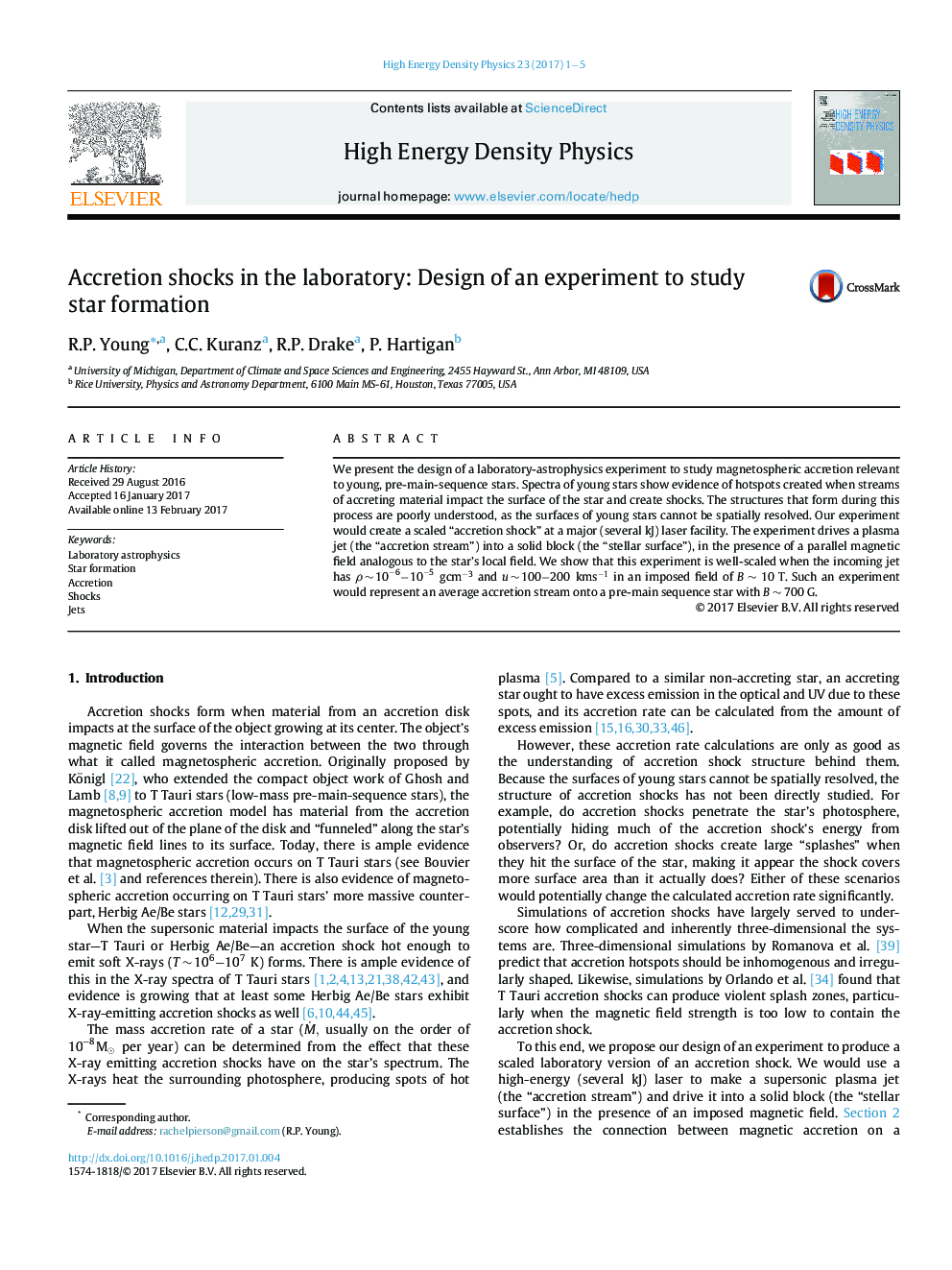| Article ID | Journal | Published Year | Pages | File Type |
|---|---|---|---|---|
| 5486899 | High Energy Density Physics | 2017 | 5 Pages |
Abstract
We present the design of a laboratory-astrophysics experiment to study magnetospheric accretion relevant to young, pre-main-sequence stars. Spectra of young stars show evidence of hotspots created when streams of accreting material impact the surface of the star and create shocks. The structures that form during this process are poorly understood, as the surfaces of young stars cannot be spatially resolved. Our experiment would create a scaled “accretion shock” at a major (several kJ) laser facility. The experiment drives a plasma jet (the “accretion stream”) into a solid block (the “stellar surface”), in the presence of a parallel magnetic field analogous to the star's local field. We show that this experiment is well-scaled when the incoming jet has Ïâ¼10â6â10â5gcmâ3 and uâ¼100â200kmsâ1 in an imposed field of B â¼ 10Â T. Such an experiment would represent an average accretion stream onto a pre-main sequence star with B â¼ 700Â G.
Related Topics
Physical Sciences and Engineering
Physics and Astronomy
Astronomy and Astrophysics
Authors
R.P. Young, C.C. Kuranz, R.P. Drake, P. Hartigan,
